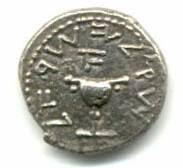Twas the Night before Christmas, and all through the land, no booze could be bought, not even beer in a can.
Michigan has "Blue Laws" restricting the sale of alcohol on Sundays, and also on Christmas (MCL 436.2113). Signs were up in many a store stating that alcohol could not be sold, so if you ran out after 9 p.m., you were out of luck with your bananas flambe.
The default rule in Michigan is that alcohol cannot be sold on Sundays at all unless a county government has a referendum and the proposal to allow alcohol for sale passes by a majority of the popular vote.
But even if a county allows the sale of alcohol on Sundays, it cannot be sold from 2 a.m. until after 12:00 p.m., and alcohol also cannot be sold from 9 p.m. on December 24 and 7 a.m. on December 26.
Blue laws are an anachronistic hangover (pardon the pun) so to speak from the time when the state was strictly regulating moral behavior, and one should be in church on Sundays and should not be violating the sabbath by drinking etc. Some counties in Michigan even maintain anti-hunting bans on Sundays, once again to make sure the faithful go to church. Of course these laws don't do much for the morals of adherents of other faiths, especially when they could often use a drink themselves.
Interestingly, many state courts have upheld these laws in the face of challenges based on religious diuscrimination, not to mention First Amendment establishment of religion issues. The courts declare that a Sunday or Christmas ban on sales of alcohol is not done for religious purposes but for the secular purpoose of a rational and reasonable relationship to the public health, safety, morals or general welfare because thereby protection is afforded all citizens from the evils attendant upon uninterrupted labor. Silver Rose Entertainment v. Clay County, 646 So. 2d 246 (1994). The Florida Court of Appeals in this case by example even concluded that a ban on the sale of alcohol on Christmas was likewise permissible as Christmas has secular components and the sale of alcohol can be banned as well to allow people to spend time with their families but it notes that vendors can still sell food and non-alcoholic beverages, and the court holds that in any case if people want to up the octane of their eggnog they can buy the alcohol ahead of time.
(If anyone else can follow the logic here let me know - apparently vendors should have time off for their families but should still be open to sell food and beverages, but it would apparently be too laborius for them to sell demon rum).
The court held that the governmental purpose of preventing people from consuming alcohol during Christmas was permissible and did not run afoul of the establishment clause as discouraging the consumption of alcohol on Christmas doesn't establish religion and was done for secular purposes.
Other states have similarly upheld such bans on sales on Sundays and Christmas.
Does anyone else really believe that banning the sale of alcohol during the time of Christian church services on Sundays and on Christmas does not have a primary religious purpose and has entangled government with a specific religion and violates the Establishment clause, not to mention equal protection issues for people of other faiths?
Friday, December 26, 2003
Subscribe to:
Post Comments (Atom)

No comments:
Post a Comment